CHINA — On Saturday, the temperatures below 20 degrees did not stop families from getting their Christmas tree.
Heather Ulmer and her family searched for the perfect Christmas tree in their Palermo backyard, but after a while, resorted to finding one at Ben & Molly’s Christmas Tree Farm in China.
After all, they had the warm cookies and hot cocoa to look forward to afterwards.
“We love just making memories,” Ulmer said. “Once hunting is done, we get our tree.”
Ben & Molly’s has become a popular destination for families to cut down their own Christmas tree.
Named after their dogs, Ben & Molly’s owners Robert and Donna Palmer said business is steady and they have seen familiar faces again this year after last year’s record breaking year in sales for most Christmas tree farms across Maine.
“It’s been very steady,” Donna Palmer said. “The pandemic hasn’t stopped people from coming out.”
The farm has 6,000 trees across the plantation, according to Donna Palmer. She expects the season to pan out on schedule, but said if anything, they might have to close a week early.
The successful Christmas tree season is for a couple reasons, speculates Jim Corliss.
One, there are fewer trees.
“In ’08, ’09 and ’10, when the economy was tougher, some farms went out and those who stayed cut back in planting, and now we are feeling the repercussions,” said Corliss, who is a member of the Maine Christmas Tree Association. “It takes a tree nine to 10 years to get up to the height most people want of 7 1/2 to 7 feet, so we are feeling that a decade later.”
He doesn’t want to call it a “shortage” of Christmas trees per say, but said people might not be able to go to their usual spot to cut down their tree this year — they might have to travel a little further and spent a little extra money.
Corliss said another factor is advertisements are more apparent this year thanks to a federal law that impacts all national Christmas tree growers. The law adds an assessment tax to each tree grown, which Corliss calls “pennies,” that is put toward a national fund of around $1.8 million for Christmas tree promotion.
He said the national law and association helps raise the percentage lost to artificial, or fake, Christmas trees. Corliss estimates it has been around 1% each year since the 1970s, for a total loss of 60-65% in the Christmas tree market. He said in the past five or six years, artificial trees have been less of a competition, though.
He used to own his own farm, Piper Mountain Christmas Trees, but sold it a couple years ago so he said he can’t speak on current trends that he has personally seen.
Tom Auger, owner of Frederickson Tree Farm in Monmouth, said 75% of this year’s customers are new.
In the first weekend of sales after Thanksgiving, the tree farm sold 900 trees. The farm only has 2,000 trees allotted for the season and Auger said last year, sales were up 30% and now this year, “it’s even crazier.”
Auger is spending the Christmas season by the beach in Florida, but said he has heard from his staff and seen from purchasing trends that most customers this year are new. He credits it to people wanting to be in the Christmas spirit.
“I think more people are in the holiday spirit,” he said. “I believe because of COVID-19 and the country’s direction and the overall direction people have, you don’t have to be a rocket scientist to figure out things aren’t going great. People don’t want to put up with crap and Christmas makes you happy — they want to be happy.”

Lion’s Club member Pat Faucher braves the elements Thursday at the Lion’s Club Christmas tree lot next to the Oakland Town Office. Michael G. Seamans/Morning Sentinel
In addition to the numerous businesses and tree farms throughout the area offering trees, there are some nonprofit organizations offering trees as a fundraiser. Among them is the Lion’s Club in Oakland, which has set up in the parking lot of the Town Office.
For the future of Christmas trees, Corliss said the Maine Christmas Tree Association has been able to prototype the “perfect tree,” but it won’t be ready for another 10 to 15 years, he said.
It started with 190 trees, hand selected, and by using their seeds to grow smaller trees, they have been able to do it for two to three generations. He said there are 15 to 16 trees currently that are “showing promise.”
“We have a seed orchard where we grow trees that show a special promise of having the characteristics of what people want — upswept branches, exceptional color and quick growth,” he said, but the main characteristic people look for in a tree would be a balsam fir that won’t shed a lot of pine needles. Corliss is hopeful the “perfect tree” from the batch will prolong needle shedding by about a week or so.
Back at Ben & Molly’s, a smaller, more bare tree was just what the Vigue family was looking for.
They too have come each year but left it up to five-year-old Easton to pick out the tree. Easton and his seven-year-old brother Colton wore Santa hats for the occasion.
“He wanted something small, like him,” said Easton’s mother, Elizabeth Vigue.
Copy the Story LinkSend questions/comments to the editors.


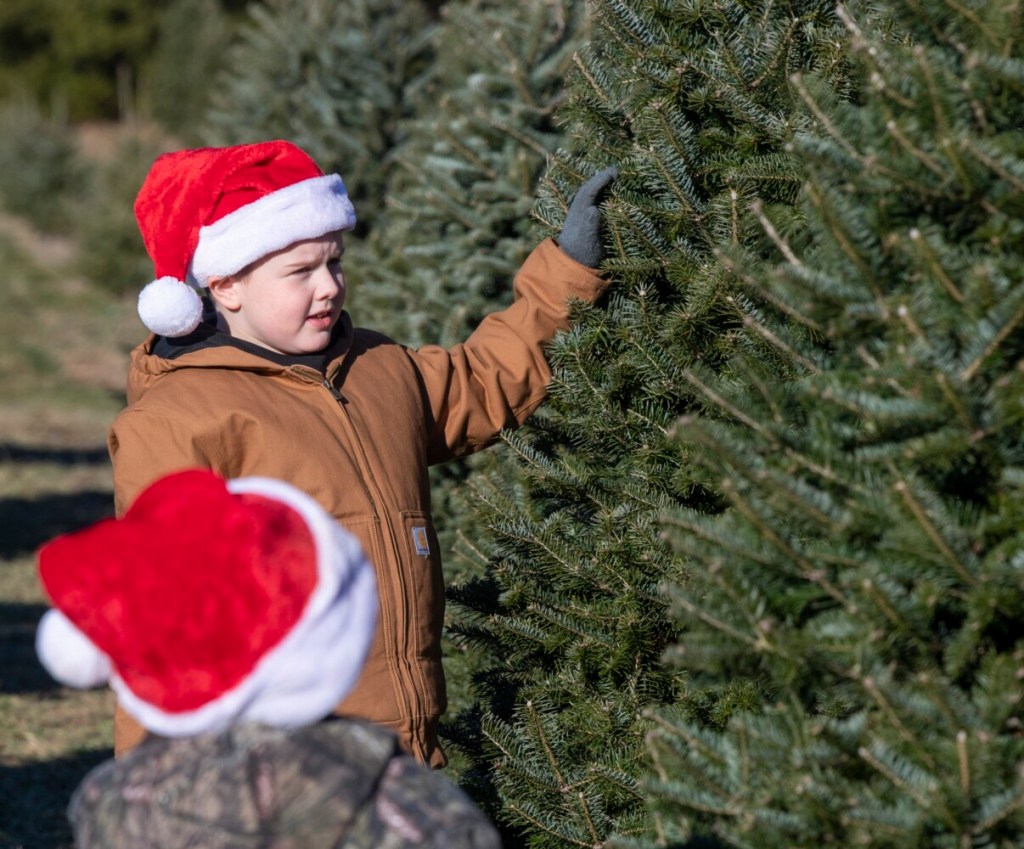
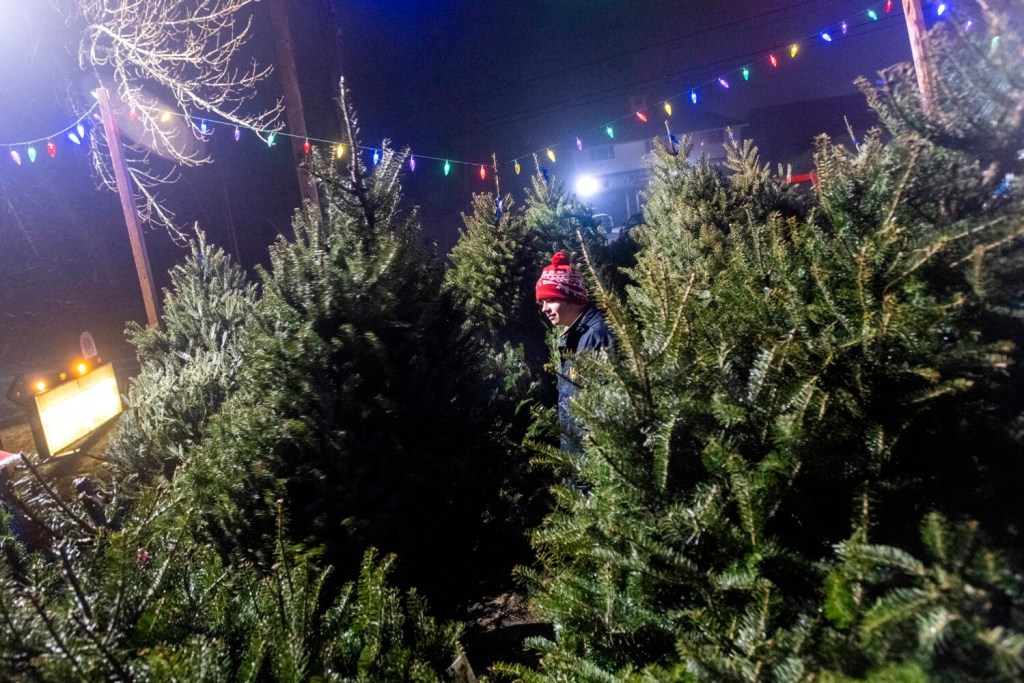
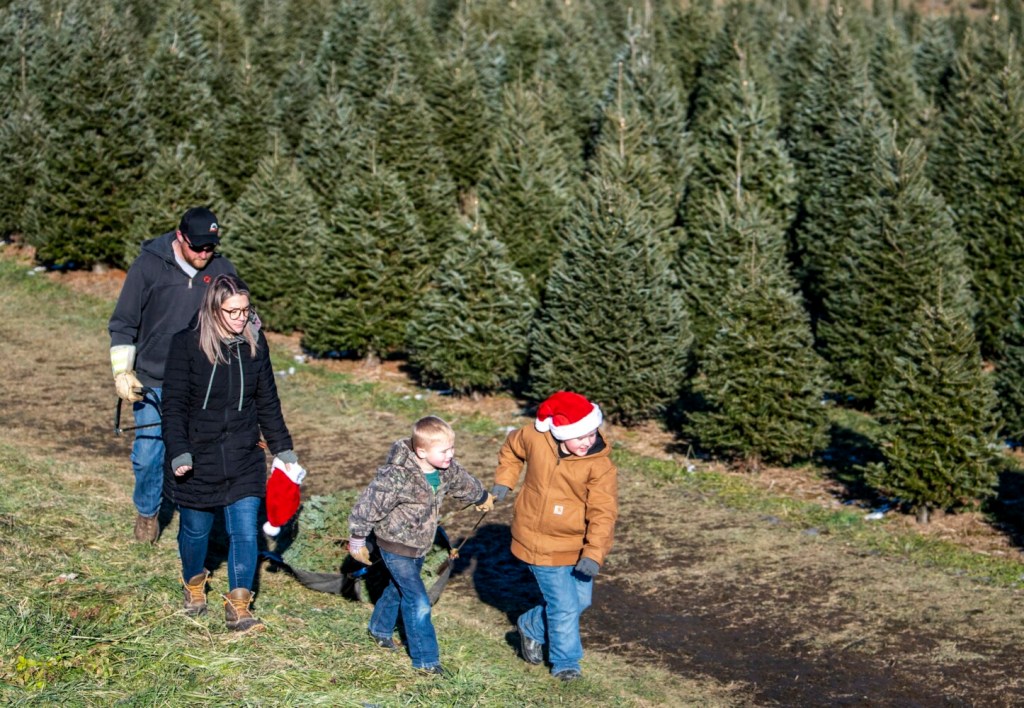
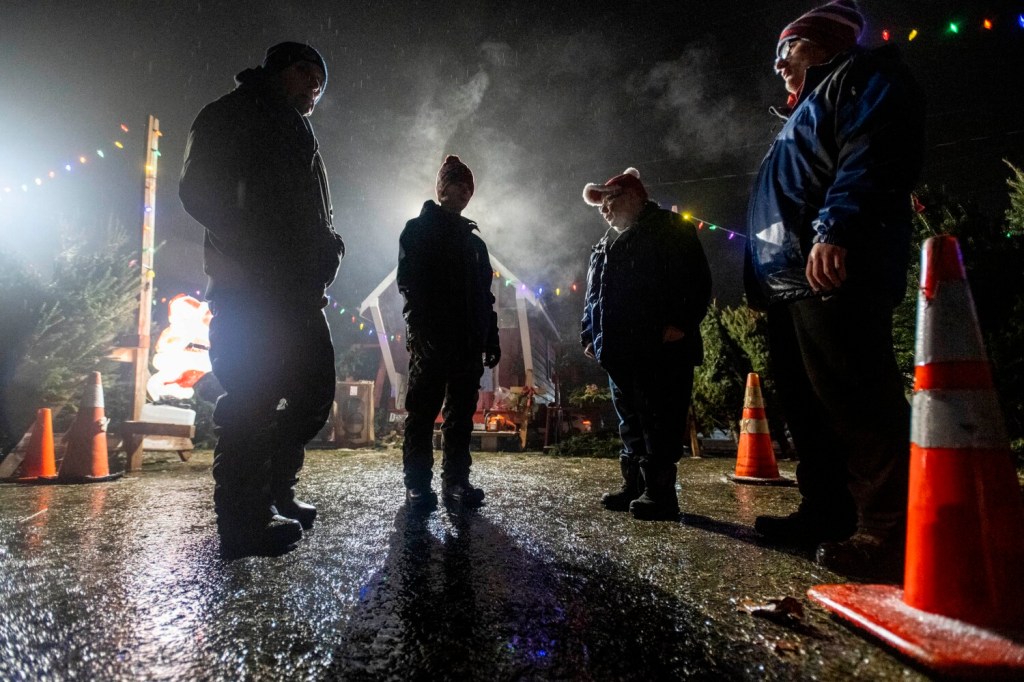
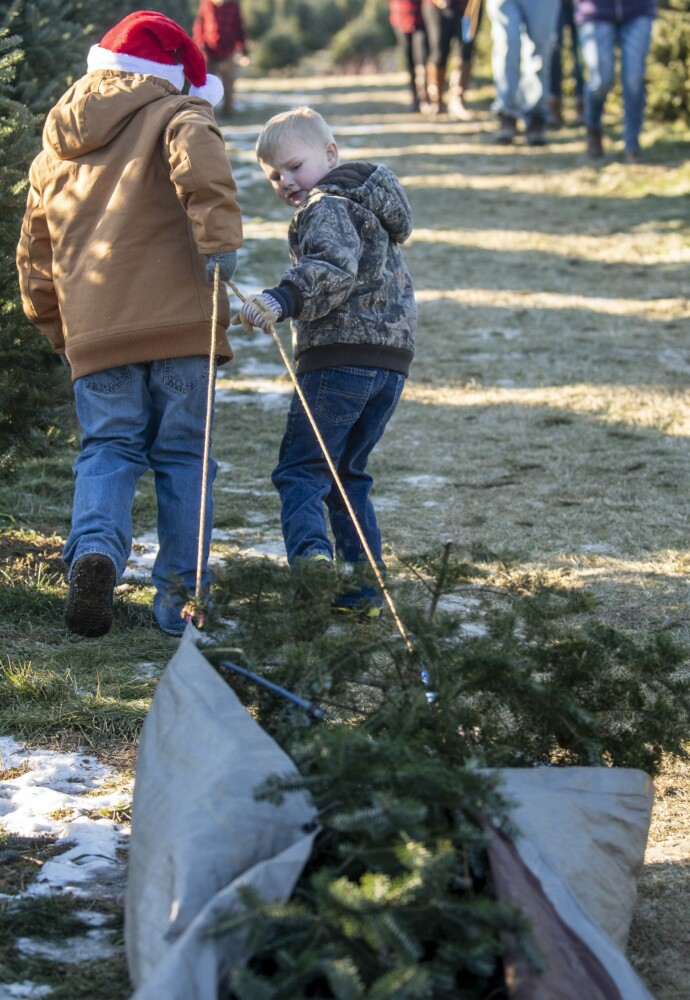
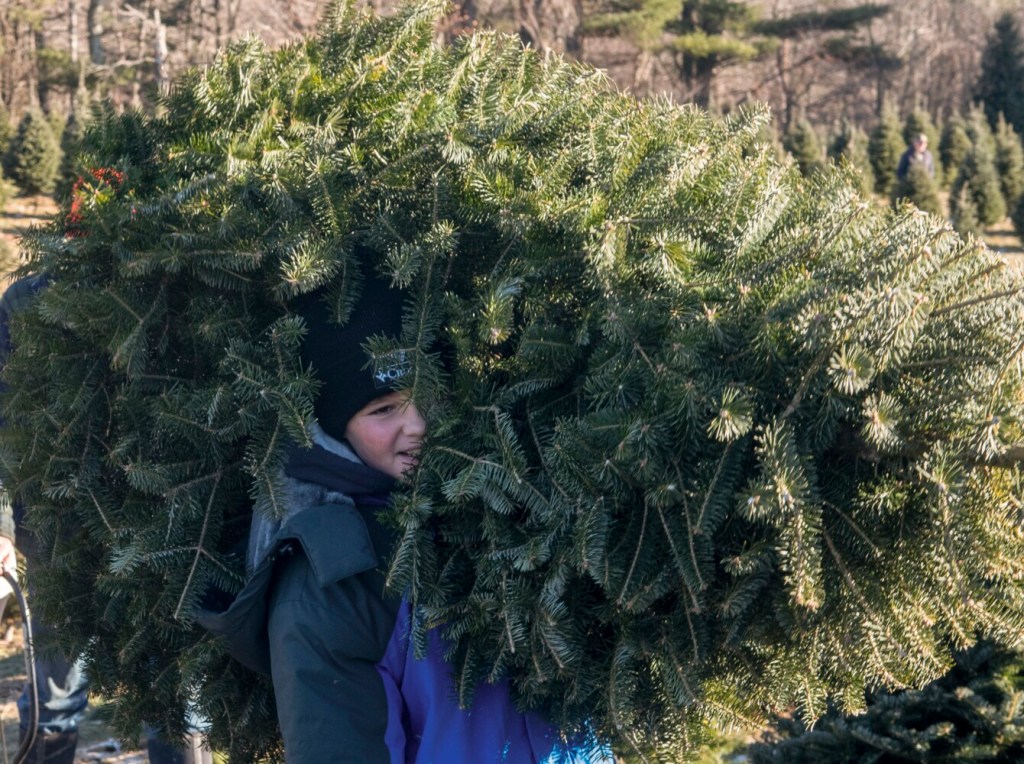
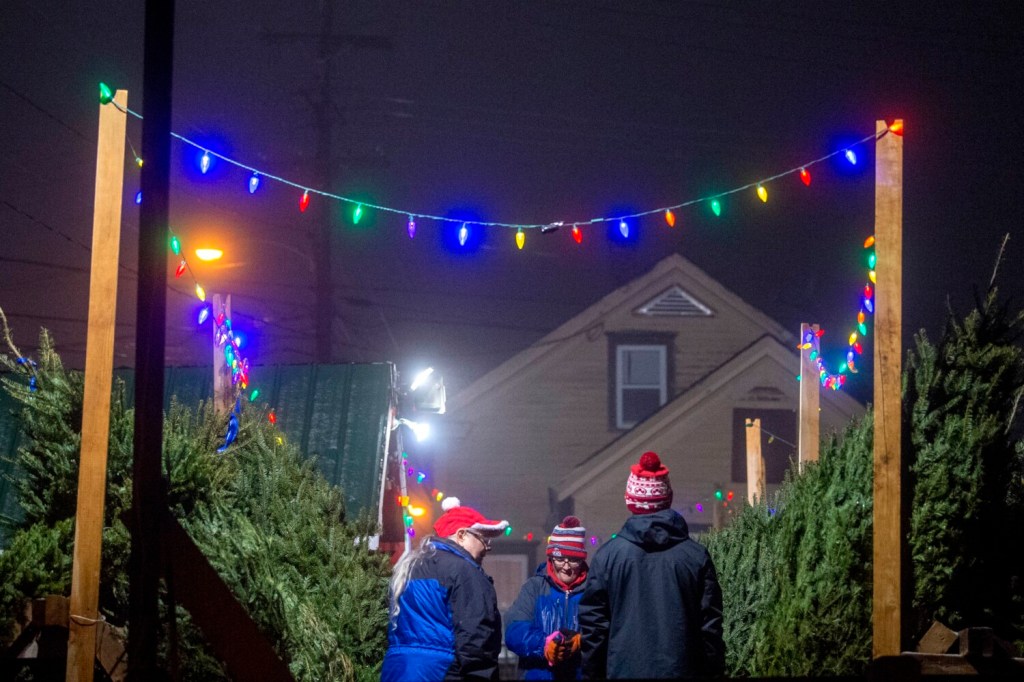
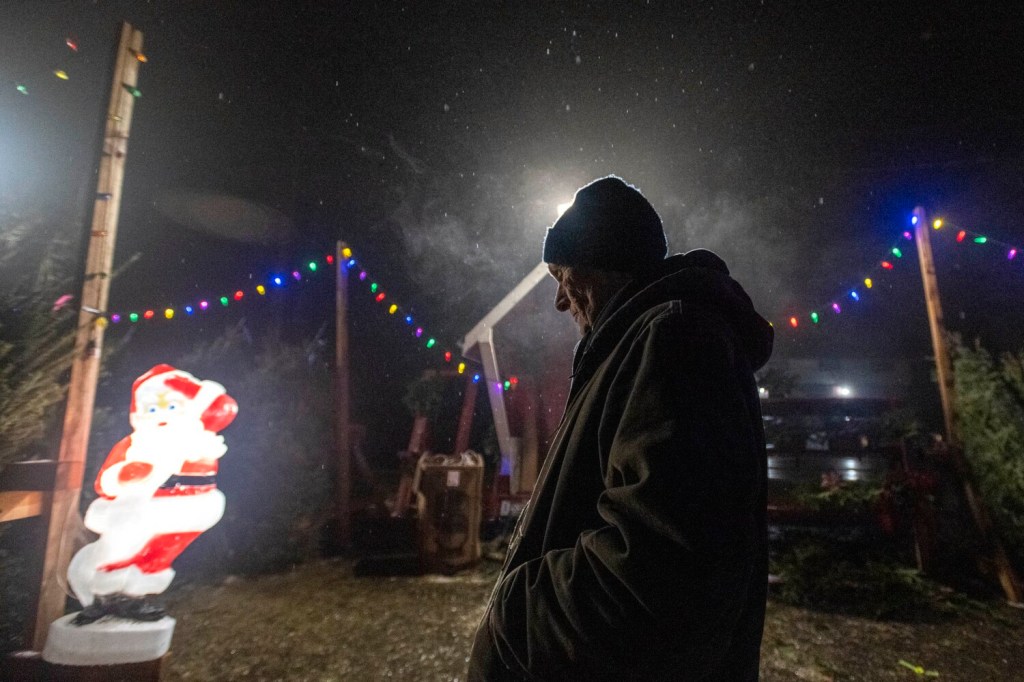

Success. Please wait for the page to reload. If the page does not reload within 5 seconds, please refresh the page.
Enter your email and password to access comments.
Hi, to comment on stories you must . This profile is in addition to your subscription and website login.
Already have a commenting profile? .
Invalid username/password.
Please check your email to confirm and complete your registration.
Only subscribers are eligible to post comments. Please subscribe or login first for digital access. Here’s why.
Use the form below to reset your password. When you've submitted your account email, we will send an email with a reset code.